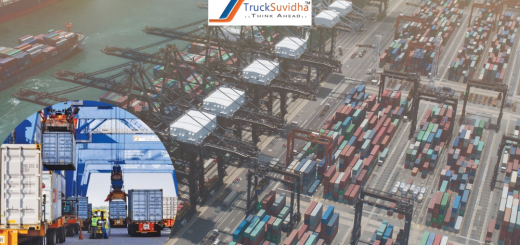Unveiling the Future of Logistics Software Worldwide
The world of logistics is constantly evolving, driven by advancements in technology and changing customer expectations. In this article, we will explore the future of logistics software and provide valuable insights and predictions for the year 2024 and beyond. Buckle up as we dive into the exciting world of logistics software!
The Evolving Landscape of Logistics Software
In recent years, logistics software has played a pivotal role in streamlining operations, optimizing supply chains, and enhancing overall efficiency. However, as we move into the future, the landscape of logistics software is set to undergo significant transformations.
Automation Takes Center Stage
One of the key trends that will shape the future of logistics software is the increased adoption of automation. From autonomous vehicles to robotic warehouses, automation is revolutionizing the way goods are transported, stored, and delivered.
However, logistics software will be crucial in managing these automated systems, ensuring seamless coordination, and optimizing their performance. With real-time data analytics and predictive algorithms, logistics software will empower businesses to make data-driven decisions and achieve higher levels of efficiency.
The Rise of Artificial Intelligence
Artificial Intelligence (AI) is another game-changer in the logistics industry. With AI-powered algorithms, logistics software will be able to analyze vast amounts of data, identify patterns, and make intelligent recommendations.
Moreover from demand forecasting to route optimization, AI will enable logistics software to make accurate predictions, minimize costs, and reduce delivery times. Additionally, AI-powered chatbots will enhance customer service by providing instant support and personalized assistance.
The Impact on Supply Chain Management
The future of these software will have a profound impact on supply chain management, revolutionizing the way goods are sourced, stored, and distributed.
Real-Time Visibility and Tracking
However, with the advancements in software, businesses will have access to real-time tracking and visibility capabilities throughout the supply chain. Additionally from the moment a product leaves the manufacturer to its final destination, logistics software will provide comprehensive visibility, empowering businesses to track and monitor their shipments with precision.
End-to-End Integration
Integrating various supply chain components has always been a challenge for businesses. However, future software will bridge this gap by enabling end-to-end integration, connecting manufacturers, suppliers, warehouses, and transportation providers on a single platform.
This seamless integration will not only enhance efficiency but also facilitate better collaboration and communication between all stakeholders, resulting in a more streamlined supply chain.
The Role of Big Data and Analytics
In the future, this software will leverage the power of big data and analytics to unlock valuable insights and drive strategic decision-making.
Optimized Routing and Delivery
By analyzing historical data, customer preferences, traffic patterns, and weather conditions, logistics software will optimize routing and delivery schedules. This will enable businesses to minimize transportation costs, reduce fuel consumption, and improve delivery efficiency.
Predictive Maintenance
Another area where big data and analytics will make a significant impact is predictive maintenance. This software will use data from sensors and IoT devices to monitor the health of vehicles, machinery, and equipment. By predicting potential failures and scheduling maintenance proactively, businesses can avoid costly breakdowns and ensure smooth operations.
Conclusion
In conclusion, the future of logistics software is exceptionally promising. With automation, artificial intelligence, real-time visibility, and the power of big data analytics, and software will shape the logistics industry in 2024 and beyond.
Businesses that embrace these advancements will gain a competitive edge by increasing efficiency, reducing costs, and delivering superior customer experiences. As the logistics landscape continues to evolve, businesses must adapt and leverage the full potential of modern logistics software.




Recent Comments